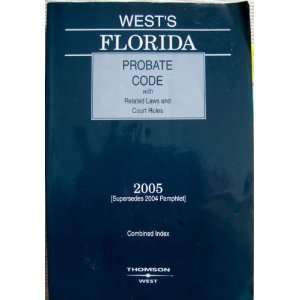 While Florida gives a person much freedom to dispose of his property (known as his “estate”) at his death, this freedom is gained only through the execution of a valid will. To be valid a will must meet defined formalities. Will execution formalities and the consequences of not having a valid will are found in the Florida Probate Code.
While Florida gives a person much freedom to dispose of his property (known as his “estate”) at his death, this freedom is gained only through the execution of a valid will. To be valid a will must meet defined formalities. Will execution formalities and the consequences of not having a valid will are found in the Florida Probate Code.
A Florida resident who dies without a valid Will dies “intestate”. In that case, a person’s estate will be distributed by the probate court as directed by law. A person who does execute a valid Will is referred to as the Testator. (While using different terms to denote gender differences has fallen out of style, traditionally the female form of “testator” was “testatrix”.)
Distribution of A Florida Estate When Someone Dies Intestate
When someone dies intestate with a surviving spouse and either no children or only children with the surviving spouse, the surviving spouse receives the entire estate. After that scenario the code defines multiple other possibilities.
If neither of the above scenarios exists, the intestate share of a surviving spouse is cut in half, and the other half of the estate is distributed in other ways. If someone wants to be certain that the entire estate goes to his/her spouse, he/she needs to have a valid will.
The possible halving of the spouse’s estate share is the most glaring example of how the Florida Probate Code may differ from someone’s wishes. As the scenarios get more complex, the likelihood that one’s wishes will not be met increase.
With short reflection the importance of having a valid Will becomes apparent. While achieving desired property distribution is an important consideration in executing a valid Will, it is not the only one. See One Pleasant and Ten Practical Reasons to Have a Last Will and Testament for additional considerations. There are also steps one can take in how to own property or the use of a “living trust” while alive that can have great impact on the distribution after death. Parents with minor children can use a will to appoint a guardian.
Types of Wills That Are Not Recognized in Florida
Florida law specifically excludes two types of wills.
- Holographic Wills. A holographic Will is one that is handwritten by the Testator without any witnesses. A Will created in that fashion will not be recognized in Florida; even it was valid in the jurisdiction where it was written by the Testator.
- Nuncupative Wills. A nuncupative Will is one that is made verbally in the presence of witnesses. Such a Will is made by terminally ill individuals when a written Will is not possible. Some jurisdictions recognize nuncupative Wills in some situations, Florida does not.
Who May Make a Will?
Any person who is of sound mind and who is either 18 or more years of age or an emancipated minor may make a will.
The Form of the Will
Florida requires the Will to be in writing. If a will is handwritten by the Testator includes the required Florida formalities, it is not considered holographic under Florida law and is valid.
The testator’s signature must be on the Will. This signature must be at the end of the document. The law provides an alternative to the testator’s signature in the event of a physical incapacity. The Will may be signed by someone else on behalf of the testator. In that event, the testator’s name must be subscribed at the end of the Will by some other person in the testator’s presence and by the testator’s direction. This individual may not be one of the two witnesses otherwise required.
Two Witnesses are Required
The signatures of two attesting witnesses are mandatory. Any person competent to be a witness may witness a Will. The witnesses must sign in the presence of the testator as well as the presence of each other. The witnesses may be persons with an interest in the Will, that is beneficiaries. While the law allows for beneficiaries to be witnesses, it is often better for individuals with no interest in the Will to witness so that there will not be any claim that a witness exerted improper influence over the Testator.
Self-Proven Wills
An affidavit is not required for a Florida Will to be valid. There are certain probate advantages if an affidavit of the Will’s authenticity is signed by the testator and the two witnesses before a notary the Will is “self-proven”. Such a “self-proven” Will may be probated in a simplified procedure.
Wills From Other Jurisdictions
Many jurisdictions have requirements differing from those of Florida. Wills executed in those jurisdictions according to their law will be recognized as valid in Florida. The exceptions to this rule are the “holographic” and “nuncupative” wills discussed above.
Execution of Codicils
There are times that someone may wish to make a minor change to a Will without rewriting the entire document. Such changes, clarifications or amendments are referred to as “codicils”. Florida will recognize such changes to a Will, but only if a codicil meets the formalities required for the original Will’s execution.






[…] [1] A valid will requires specific formalities. There are requirements of witnesses, acknowledgement by the testator and potentially more. These formalities vary from state to state. To be certain a will is “valid” one needs to be sure its creation and execution complies with the relevant law. For example, here are requirements for a valid will in Florida. […]